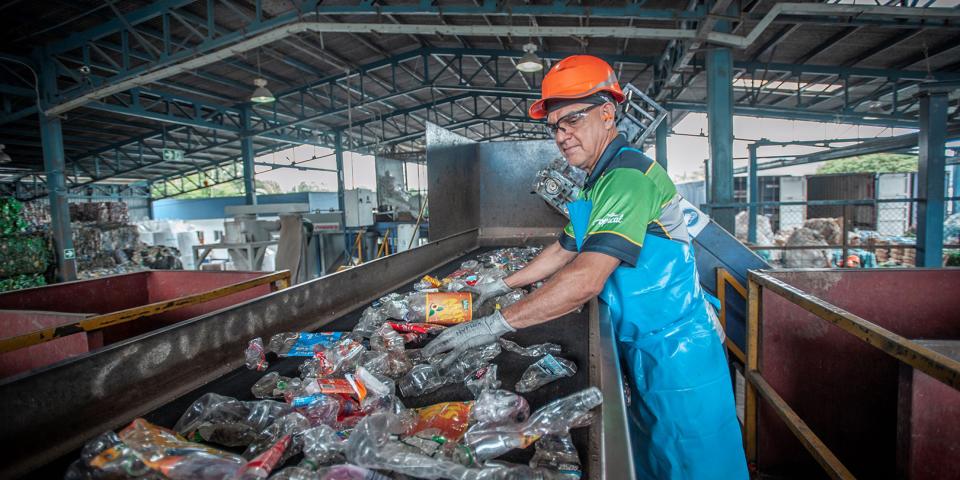In the past decade, carlsberg group in reducing their entire operations and the negative impact of the supply chain has made good progress.However, given the enormous challenges facing the world, carlsberg recognise the need to further strengthen action in order to realize the sustainable development of the United Nations agreed on a global scale the target and the Paris agreement.Carlsberg group, therefore, put forward the "common goal towards zero" initiative, aims to "zero carbon footprint", "zero waste water", "irrational drinking zero goals" and "culture" zero accident four aspects such as implementation group during the period of 2022 to 2030's ambitions and goals.
In order to make these goals and ensure that the corresponding feasibility of carlsberg group hopes to associated with experienced partners for more technical support and practical guidance.Choose the carbon trust is in order to better support the carlsberg group on climate change, the enterprise's sustainable development, public affairs management and supply chain team of long-term development.In order to help the carlsberg group established to achieve and meet the requirements of the climate science, first of all, the carbon trust to ensure that the enterprise can accurately measure the end-to-end carbon footprint its entire value chain, at the same time combines the emissions of the whole supply chain and the downstream customers of the product use and disposal of the carbon footprint.Second, the carbon trust help carlsberg group identified the flexible applicable and can achieve emission reduction targets, this need and climate science required to limit global warming to no more than 2 ℃ goals coincide.Finally, the carbon trust to help formulate a specific map, detailed expounds how to realize the above mentioned these goals.
Measure the carbon footprint of the value chain
For carlsberg group's ambition to the latest climate change strategy key the first step is to calculate the enterprise global carbon footprint.This is because the accurate measurement of carbon emissions can promote enterprise success in reducing emissions.By determining emissions can hot areas in view of the low efficiency of action, or to seek innovative products and business model to reduce the negative impact.At the same time, also provides accurate measurement to track progress of the baseline, which activity is most effective to help understand.Carbon emissions by developing a database of the trust, calculator and a variety of ways such as business intelligence dashboard to support of insight into the data information of carlsberg group.
According to the GHG Protocol, corporate greenhouse gas emissions can be divided into the following three areas: the scope of 1 is direct greenhouse gas (GHG) emissions, range 2 is for the purchase of electricity, heat or steam discharge, range 3 covers may be caused by business activities related to all other indirect emissions, including the widespread influence in the field of supply chain and so on.Measure the carbon footprint of the value chain is the most challenging part is in the process of quantitative range 3 emissions, because it requires a greater use of estimates and assumptions, based on secondary data to understand the business of the upstream and downstream of the full impact produced by multiple steps.
With emission measurement experience in many sectors of the economy and area, the carbon trust in the world's leading professional knowledge for carlsberg group to provide the corresponding support.Particularly important is to know the different products in the global market in each life cycle stage of carbon emissions, including from the production of raw materials to final packaging processing.Carbon trust development tools allow carlsberg group to understand its overall carbon footprint and carbon emissions produced by every hundred litres of beer brewing, to help enterprises to determine the environmental impact of their products throughout the life cycle of contribution and efforts in the direction of the emission reduction.
Set up a scientific carbon targets
Carbon trust the next phase of work is to support the enterprise formulate relevant scientific carbon targets (Science - -based Target).The core is to help determine the carlsberg group operating target completely conform to keep global warming in the pre-industrial level under 2 ℃.
Carlsberg group, the commitment is to achieve its brewery in 2030 net zero emissions of greenhouse gases, which will make the business scope of the range of 1 and 2 of emissions 92% less than in 2015.This goal is beyond 2 ℃ threshold required level of emissions, and reached the Paris agreement carries a higher goal.Carbon trust is carbon target initiative science technology advisory group members, by the customer with multiple departments closely set in line with the methodology of science for its carbon targets.This experience is used to adjust the carlsberg internal group targets and indicators, to ensure that the aim of the company more than the required level of carbon emissions.
Get science to make this goal in the next phase of carbon target recognition initiative, carlsberg need further measures and implementation of goals to reduce emissions range 3.For this purpose, the company will arrive its commitment to 2030 consumers in the hands of a bottle of beer (beer - in - hand) of the value chain, a 30% reduction in carbon footprint;In 2015, the same as the base year, medium-term target of 15% by 2022.The early stage of the carbon trust for carlsberg group the success of the value chain of carbon footprint measurement, contributed to this goal.The potential suppliers and customers in the future has had a profound effect, but also for enterprises to set up flexible and can realize the goal of the science of carbon laid the foundation of benchmark and smart business.
Carbon trust have multiple industries from several countries in the world more than 30 leading companies set scientific carbon goal provides consulting services, enhance the brand image for the enterprise, reshape corporate response to climate change strategy, and win the advantage in the low carbon economy.






